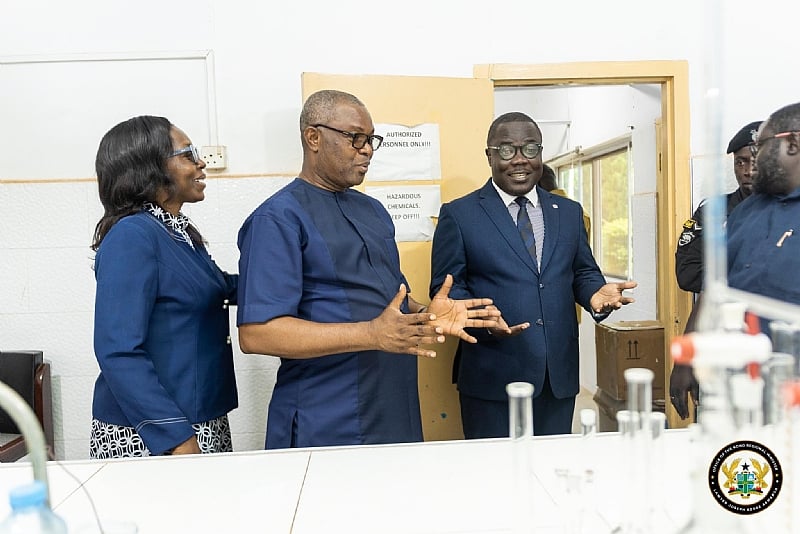Joseph Addae Akwaboa, the Bono Regional Minister, embarked on a familiarization tour of key institutions in Sunyani, the regional capital, to gain firsthand knowledge of their operations and working conditions. These institutions, including GRIDCo, Ghana Water Company Ltd., the Food and Drugs Authority (FDA), the Bank of Ghana (BoG), and the Ghana Broadcasting Corporation (GBC-BAR), play crucial roles in delivering essential services and driving development within the Bono Region. The Minister’s visits aimed to strengthen collaboration between the regional administration and these vital organizations, ensuring alignment with his development agenda for the region. The institutions, in turn, pledged their unwavering support to the Minister’s initiatives, encouraging him to leave a positive and lasting legacy during his tenure.
A significant focus of the tour was on identifying ongoing projects within each institution’s jurisdiction that required the Minister’s intervention and support. Discussions revealed a range of critical projects, including initiatives to expand water access, improve road infrastructure, enhance electricity supply stability in Sunyani and its environs, and provide necessary infrastructural upgrades to educational institutions. The Minister pledged his commitment to expedite these projects, recognizing their potential to significantly improve the quality of life for the people of the Bono Region. This hands-on approach signals the Minister’s dedication to driving tangible progress and addressing key developmental challenges within the region.
During his visit to the Narcotics Control Commission (NACOC), the Minister underscored the importance of combating drug abuse and illicit trafficking, pledging his support to enhance the agency’s effectiveness. Impressed by the dedication and expertise of the NACOC team, led by Regional Commander Mr. Ernest Owusu Sarpong, the Minister committed to facilitating the relocation of their office to a more suitable location. This commitment aims to streamline operations and bolster their efforts in curbing drug-related activities within the region. The Minister’s commitment to supporting NACOC reflects his recognition of drug abuse as a serious impediment to regional development and the need for a robust and effective response.
The National Petroleum Authority (NPA) also received a visit from the Minister, who engaged with the management team to gain insights into their regulatory role within the petroleum downstream industry. He expressed admiration for the professionalism and expertise of the NPA staff, acknowledging their dedication to protecting the interests of Ghanaian consumers. The Minister pledged his support to address the challenges faced by the NPA, emphasizing the importance of a robust and efficient petroleum industry for the benefit of the region. This commitment underscores the interconnectedness of various sectors within the regional economy and the need for collaborative efforts to ensure their optimal functioning.
At the Ghana Broadcasting Corporation (GBC BAR) in Sunyani, the Minister’s visit highlighted the crucial role of media in regional development. He pledged to address the deplorable state of the road leading to the GBC premises, ordering immediate action to reshape the road and pave the way for more permanent improvements. This prompt response to a pressing concern demonstrated the Minister’s commitment to addressing practical challenges and improving the working conditions of vital institutions. Beyond infrastructure, the Minister also engaged with the GBC staff, emphasizing the importance of accurate and responsible reporting.
Furthermore, the Minister engaged with the GBC staff on the principles of ethical journalism. He stressed the importance of fact-checking and verification before publication, urging them to prioritize accuracy and credibility in their reporting. This emphasis on journalistic integrity underscores the Minister’s understanding of the media’s influence in shaping public discourse and its vital role in promoting truth and accountability. He advised journalists to adhere to professional ethics, ensuring that their reporting contributes positively to the region’s development and fosters informed public engagement. This commitment to responsible journalism reinforces the importance of a vibrant and independent media in a democratic society.


